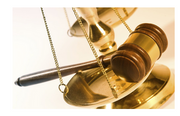A Brief Guide to Unsecured vs. Secured Debt In Chapter 7 Bankruptcy

Under Chapter 7 bankruptcy, a court-appointed trustee will oversee asset liquidation. You are allowed to claim many exemption and keep those items. Many people are allowed to keep everything. How your case proceeds will depend on the equity in your assets, your income and whether your debts are secured or unsecured. The following guide will help you understand the difference between the two, and thus to work with your lawyer to create a plan of action.
What Is Secured Debt & What Happens to It Under Chapter 7?
A secured debt is guaranteed by property. The lender will maintain an ownership interest in the property known as a lien; in the event that you cannot repay the loan, the lender can reclaim the property and sell it to repay the debt. An example of secured debt is using your house as collateral on a mortgage.
Under Chapter 7, you’re no longer responsible for repaying a secured debt but creditors have the right to reclaim their property, once proceedings are over. If the property is now worth less than you owe for it, lenders aren’t allowed to sue you for lost value.
Your lawyer will inform the court of how you intend to manage a secured debt. Giving back the property is the most straightforward option. Alternatively, to keep the property, you will have to either reconfirm that you owe the debt. Or you may take full ownership by paying the creditor its market value. You might also be able to keep the property if you work out a deal with the creditor in which you continue making payments.
What Is Unsecured Debt & What Happens to It Under Chapter 7?
Unsecured debt isn’t secured by property or other collateral. Medical, credit card bills and utility balances are all examples of unsecured debt. Thus, creditors cannot reclaim property as a means of collection; instead, they’ll have to file a lawsuit against you and succeed in order to begin collection.
Whether you’ll be required to pay your debts or not will depend on their classification as priority unsecured or nonpriority unsecured. Priority debts include tax obligations, child support, and alimony. Under Chapter 7, you’ll be required to pay these debts if you have the means. Even if you don’t have the means, they’re nondischargeable and you’ll be responsible for them after proceedings.
Nonpriority unsecured debts are paid following priority debts if there are funds available to pay them. Typically, most claims are discharged during Chapter 7 proceedings, but some student loans are exceptions. Keep in mind that they may be dischargeable if your lawyer proves you’ll have difficulty repaying them in the future. If after your exemptions are considered additional assets become available, nonpriority unsecured creditors will be the last to receive repayment.
If you are having difficulty making your payments due to these troubling times there are many options available to help you manage your debt and take back control of your life without giving up your assets.
Chapter 13 may be a better option if you are already behind on your secured debts and want to get caught up but need time to do so.
When facing the complexities of bankruptcy proceedings, you’ll want the experienced lawyers at Watson Law Firm of Harrison in Harrison, AR on your side. With over 30 years of experience, their knowledgeable team will recommend legal action to protect your assets and loved ones. In addition to bankruptcy, they handle criminal charges, divorce, and other complex legal issues. For lawyers that give you that rare, undivided attention, call (870) 704-4037. Read more about their experience with bankruptcy cases online.
About the Business
Have a question? Ask the experts!
Send your question

